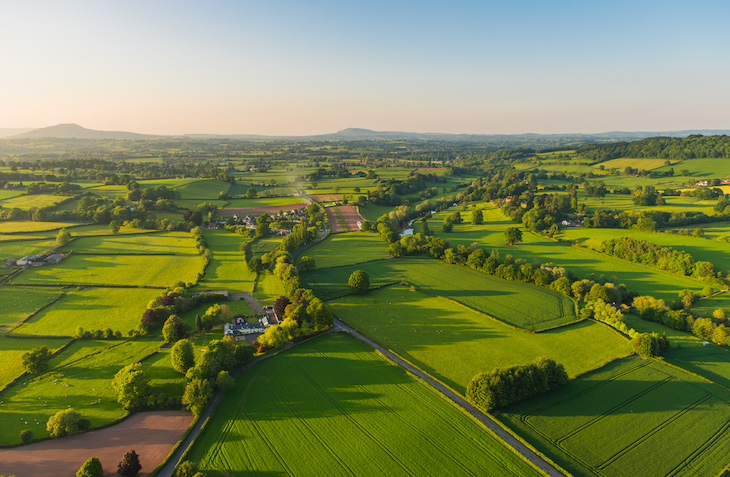We will find out in Rachel Reeves’ first budget on 30 October whether Labour really does intend to wage a war on wealth. It is all too easy to see the Chancellor playing to her gallery by imposing punitive taxes which are designed more to achieve social engineering than to raise revenue, and which stifle entrepreneurism and make the country poorer in the process.
But there is one issue on which I am afraid I will not be joining the barricades. The government is reported to be considering capping the price which landowners in the green belt can receive when selling their land to feed Labour’s proposed house-building boom. Landowners, in other words, would not be able to make huge profits on land which they had bought at agricultural value. Instead, like the landowners whose land was compulsorily purchased for the post-war new towns, they would be compensated at a much lower level.
No society – not even one committed to free markets – can allow itself to be held to ransom by landowners.
Call it a ‘communist land grab’ if you like, but that rather misses the point. The vast profits which are bagged by landowners when they receive planning permission are themselves a product of Soviet-style central planning. Prime agricultural land in the south east of England typically sells for around £10,000 an acre. With planning permission for housing that will rise to £1 million or more. The vast uplift in value is not created through enterprise but through the stroke of a planner’s pen – it is a gift from the state, which ends up lining the pockets of a few individuals and lucky corporations who happen to find their land in the right position to satisfy current planning policy.
Imagine if there was no planning system. Land would be worth neither £10,000 an acre nor £1 million an acre but somewhere in between – most probably rather closer to the lower end. The planning system suppresses the value of agricultural land by prohibiting it from being developed, but it also boosts the value of development land by creating artificial scarcity.
You don’t have to think that private property is evil to see the iniquity of this. The planning system is vastly inflating the cost of development land, which in turn inflates the cost of housing, putting home-ownership well beyond the means of many people. Moreover, the vast profits to be made through obtaining planning permission are a recipe for corruption. The current system is also bad for farming and food security in that it attracts speculators rather than farmers buying land in places where planning permission is a possibility in future.
No society – not even one committed to free markets – can allow itself to be held to ransom by landowners. There is a good section in W. G. Hoskins’ Making of the English Landscape which explains how the slums of 19th century Nottingham were created by landowners refusing to sell land, and others to give up rights on land, to allow the city to expand. The result ever larger numbers of people having to be housed at ever greater densities.
The fairest way to handle new housing would be for development corporations to compulsorily purchase land at agricultural value plus a percentage extra for disturbance. The development corporation would then grant the land planning permission and sell it on to housing developers – and individuals who want to buy their own home – at a price which captures some value for the construction of infrastructure. No, it isn’t socialism, not least because it would be private developers actually building the housing. It is simply an intervention in the market which recognises that land is a very special asset. The true free market alternative – in which the planning system would be dismantled and anyone allowed to build anywhere – would be unpalatable to most people, and would create misery through congestion and the loss of open space.
If the above proposal is what the government is intending then good luck to it – from someone who is in most respects a free marketeer.
Hear Fraser Nelson and Liam Halligan debate Labour’s housing plan on today’s Coffee House Shots:








Comments